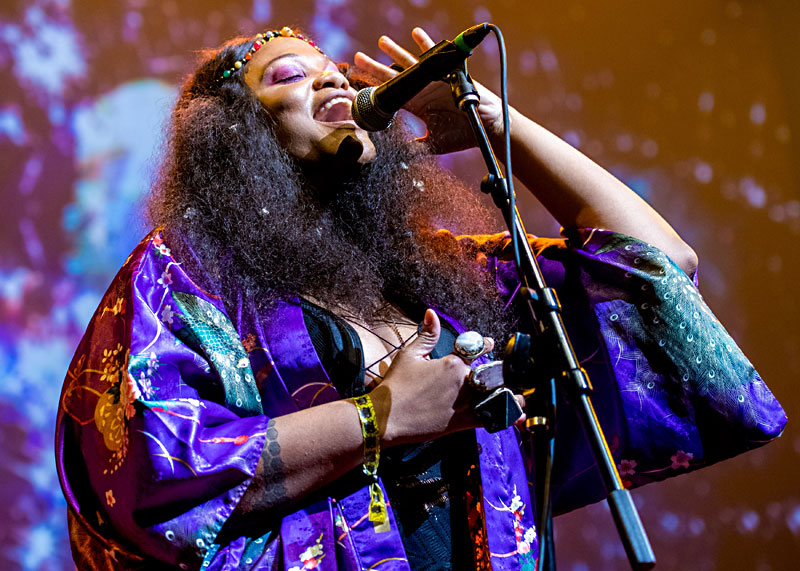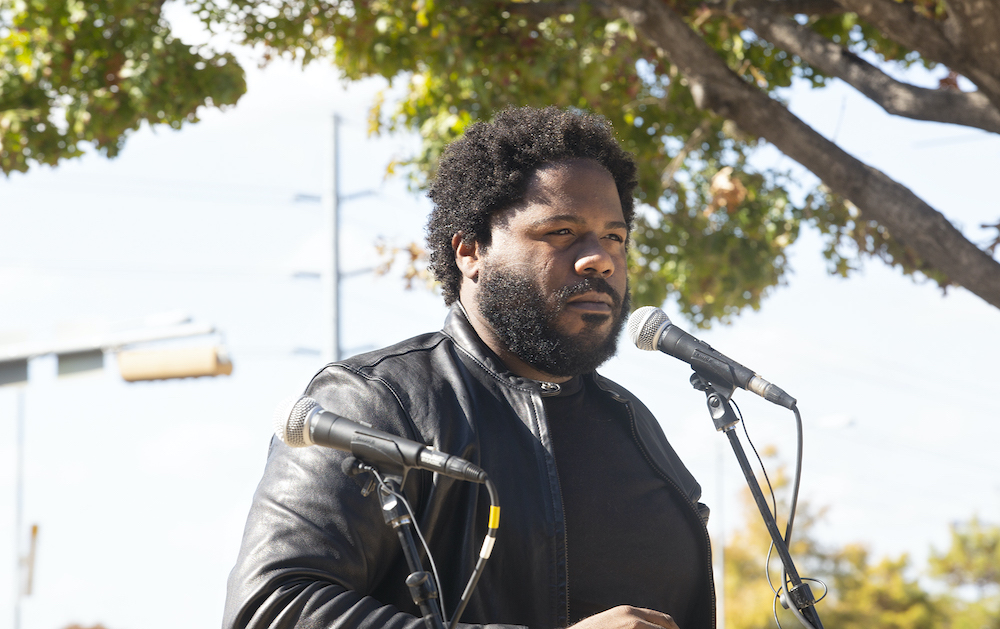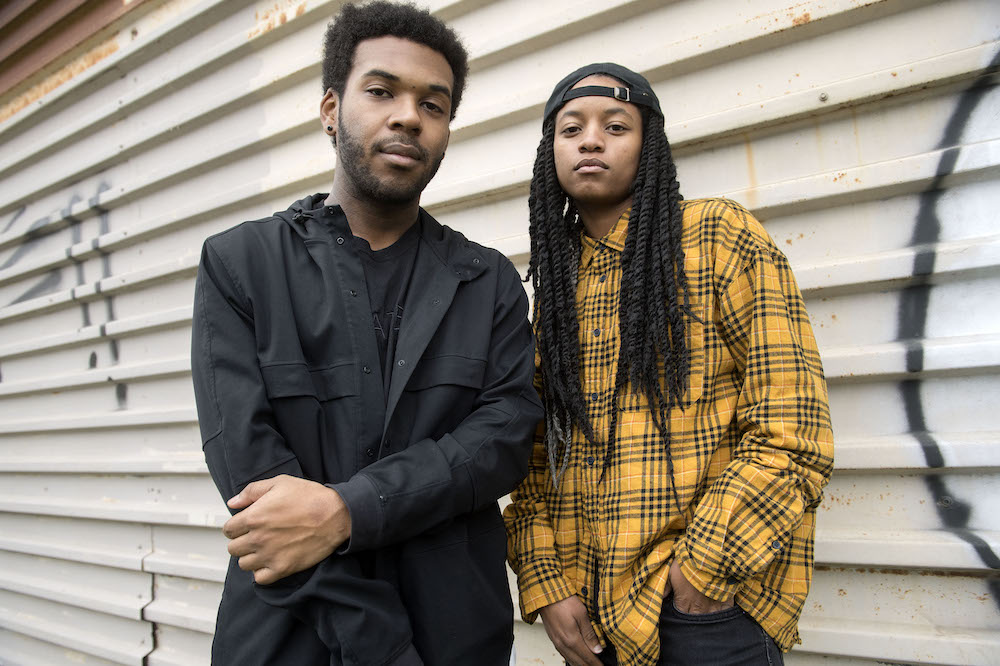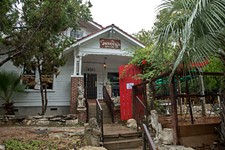Faster Than Sound: Should the Live Music Fund Go to Musicians or Venues?
While eligibility is worked out, Music Commission nails down “PIE” equity plan
By Rachel Rascoe, Fri., Nov. 5, 2021

At Monday's Austin Music Commission meeting, emotional discussion swirled around whether music venues should be eligible for a long-discussed city fund, currently drafted to benefit independent promoters and musicians to throw their own events. City Council created the Live Music Fund (LMF) in 2019 based on a 2% increase in hotel occupancy taxes. By latest counts, the fund's balance has grown to $3.2 million.
While eligibility is still being worked out, the commission did nail down a focus on racial equity in the music industry-supporting effort.
In a unanimous vote, the commission recommended City Council include principles of Preservation, Innovation, and Elevation & Collaboration (PIE) at the program's core. The PIE concept, developed by commissioner Jonathan "Chaka" Mahone, centers historically underserved communities, genre diversity, and talent development. A drafted scoring matrix prioritizes BIPOC, LGBTQIA, disabled, and women applicants. Members of the Black Austin Musicians Collective, like Chris Beale (Magna Carda), Torre Blake, Jonathan Horstmann (Urban Heat), and Eimaral Sol, turned out to speak in support of PIE.
Longtime Austin musician Tameca Jones tearfully said she plans to move to Los Angeles at the end of the year for better opportunities, mentioning other artists BLK ODYSSY and Zeale with California plans.
"You will see many more musicians like me either quit or be forced out of this city if you don't take measures to protect and uplift us," she said. "The PIE guidelines must be enacted so people like me do not get overlooked and fall through the cracks. This city has broken me to the point where I have to leave it to thrive."
Many artists also spoke in favor of LMF support going directly to musicians, rather than being administered through music venues. Megz Kelli of Magna Carda mentioned recent grants already received by venues through federal and local COVID-19 relief programs.
"Musicians need this city to back us up, and we need to be seen as legitimate like all other businesses, including venues," said Kelli. "Venues got bailouts, and still refused to pay us just wages."
[Kelli contacted the Chronicle after this article was published wishing to clarify her comment with the following statement: "I want to be fair – this isn’t the case for all Austin music venues. There are venues working with us to create a better ecosystem. Unfortunately, what musicians face most of the time is a system that doesn’t pay them well, and that’s one of the many things policy makers and city officials need to see and consider when they’re discussing the Live Music Fund."]
Conversation over eligibility will continue, as commissioners ultimately delayed a vote on guidelines and formed a new working group on the topic. Discussion centered on two proposed plans, one from the public civic sphere and one from private advocates.
Austin's Economic Development Department (EDD) created guidelines over the past year based on feedback from commissioners and a systemic racism-focused working group. The latest drafted plan would fund professional musicians and independent promoters, which must not contractually be tied to one venue, to throw events with small grants $5,000-10,000. Emphasizing fair pay, musicians must be paid out at least $150 hourly with all contractors paid at least $15 an hour.
Independent promoters or musicians would be tasked with budgeting out expenses like marketing, sound engineers, lighting, and talent. Music & Entertainment Division Manager Erica Shamaly explained that grant recipients could decide to have events anywhere from a local park to a neighborhood street. Artists can also utilize traditional venues "either through a rental or through a deal that the artist and the venue come up with."
"Our goal is to put that money with the musicians and small independent promoters, to go learn the ins and outs of putting on shows in our music industry, and paying people, as they go, a living wage," she added on the program's educational goal.
Another recently submitted plan by the advocacy organization Music Makes Austin (MMA) would add live music venues to the list of potential grant recipients. Also abiding by a minimum of $150 payout per musician, the proposal includes a potential maximum of $3,000 per band. Responding to EDD's plan from the commercial music industry perspective, their proposal adds two solid points:
Do musicians want to plan shows? "Artists do not largely desire to become independent promoters, but want to focus work on creative. Utilizing existing infrastructure allows for a more effective and efficient delivery of dollars."
Don't we usually call rental fees something else? "Music venues do not rent out their rooms unless it is for a private event. A program that incentivizes venues to charge historically underrepresented musicians to play on their stages is a predatory practice, referred to as 'pay to play,' and is strongly discouraged in the professional music industry."
Music Venue Alliance Austin's Rebecca Reynolds, an attorney and key player in the years-long creation of the fund, pushed for integration of the two plans.
"I'm here to say that a program that intentionally excludes independent venues is unacceptable," she said. "In fact, I'm surprised by this group of music community representatives. You have arrived at a loyalty test between equity and independent venues. I'm convinced you know that this is a false choice."

Commissioner Scott Strickland expressed frustration with the timing of MMA's recommendations, which were sent to council members Friday evening. He referenced that MMA sits under Keller Williams Realty founder Gary Keller's funded umbrella of music advocacy organizations.
"I have talked to many of my brothers and sisters on this commission who really see what happened here as a sign of betrayal," he asserted. "I just want to remind this commission that when you sit in that chair, you work for the people that appoint you to be there. You don't work for Gary Keller."
The MMA plan responded directly to complicating statements from Mayor Steve Adler made during an Oct. 12 council work session. Adler said the EDD's drafted plan looked too much like the existing nonprofit-oriented Cultural Arts grants, which he said already supports "the shows you see in public spaces and at libraries." Adler really doesn't want any ambitious, book-worming musicians throwing shows at a library with LMF dollars. (Which sounds pretty fun, albeit unlikely.)
"I mean, once they perform at the library, then how is it that they actually get into the industry to support themselves the rest of their lives, and support their families?" the mayor theorized.
When the Austin Monitor nicely offered Adler an opportunity to explain these comments, he doubled down on the library-hating and compared musicians to circus animals. He told the Monitor: "If you're playing at the library a lot of these times you're playing for five, 10, 15 people. Wouldn't it be better to put them in an actual club on Sixth Street on a Friday night and let them hear when people applaud them, or start booing and throwing peanuts? Let them be in that environment, trucking in their equipment and learning the trade."
The mayor advocated that the LMF should not support individual artists, but rather "long-term investment" in the music industry, naming players like venues, promoters, and publishers. He also proposed creating a new music venue – which city staff had to later point out is not an allowed use of HOT funds under state statutes. At Monday's meeting, EDD Director Sylnovia Holt-Rabb kindly emphasized: "You cannot use these funds to purchase a building or a venue. Just wanted to put that reminder out there."











